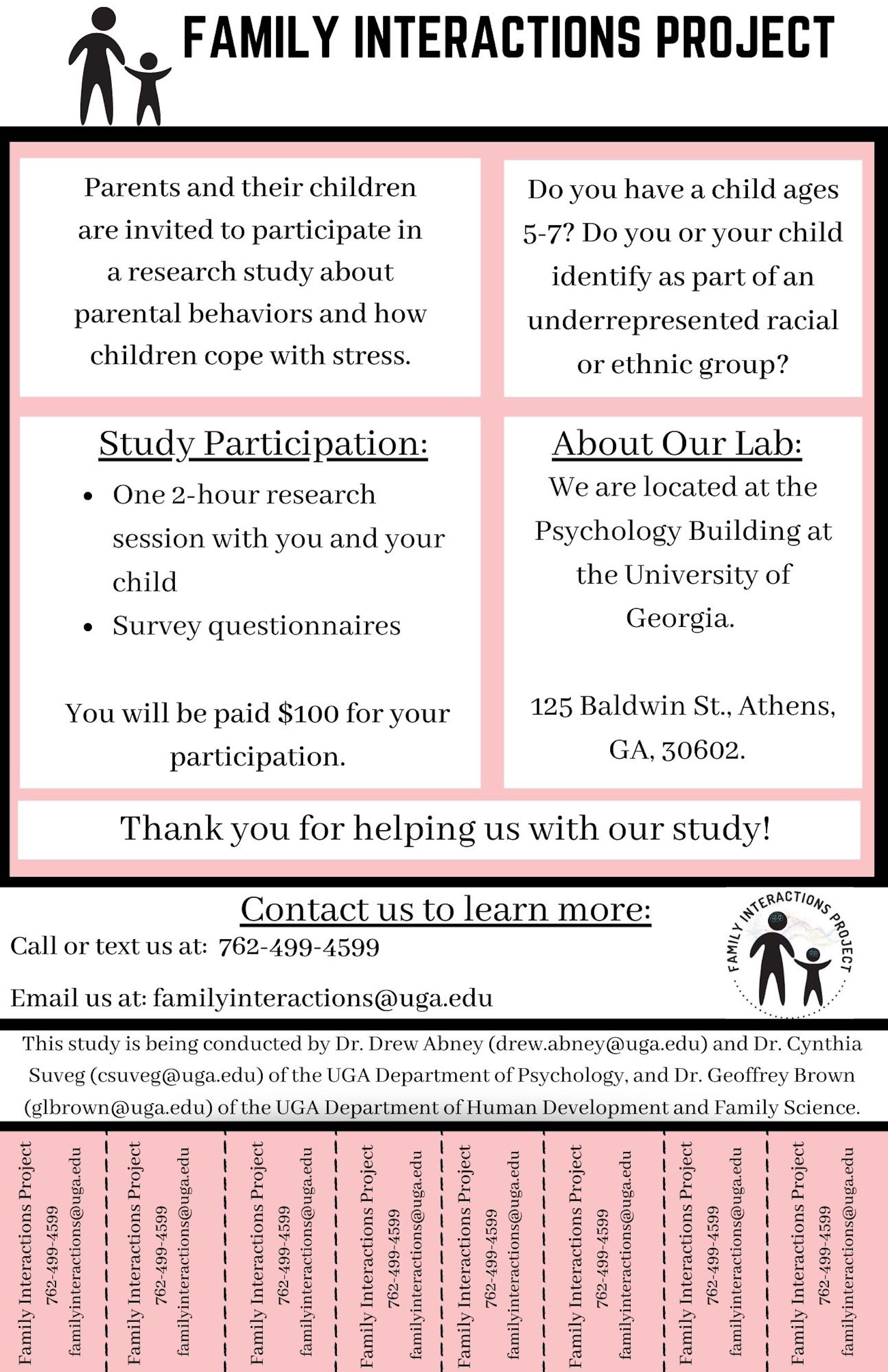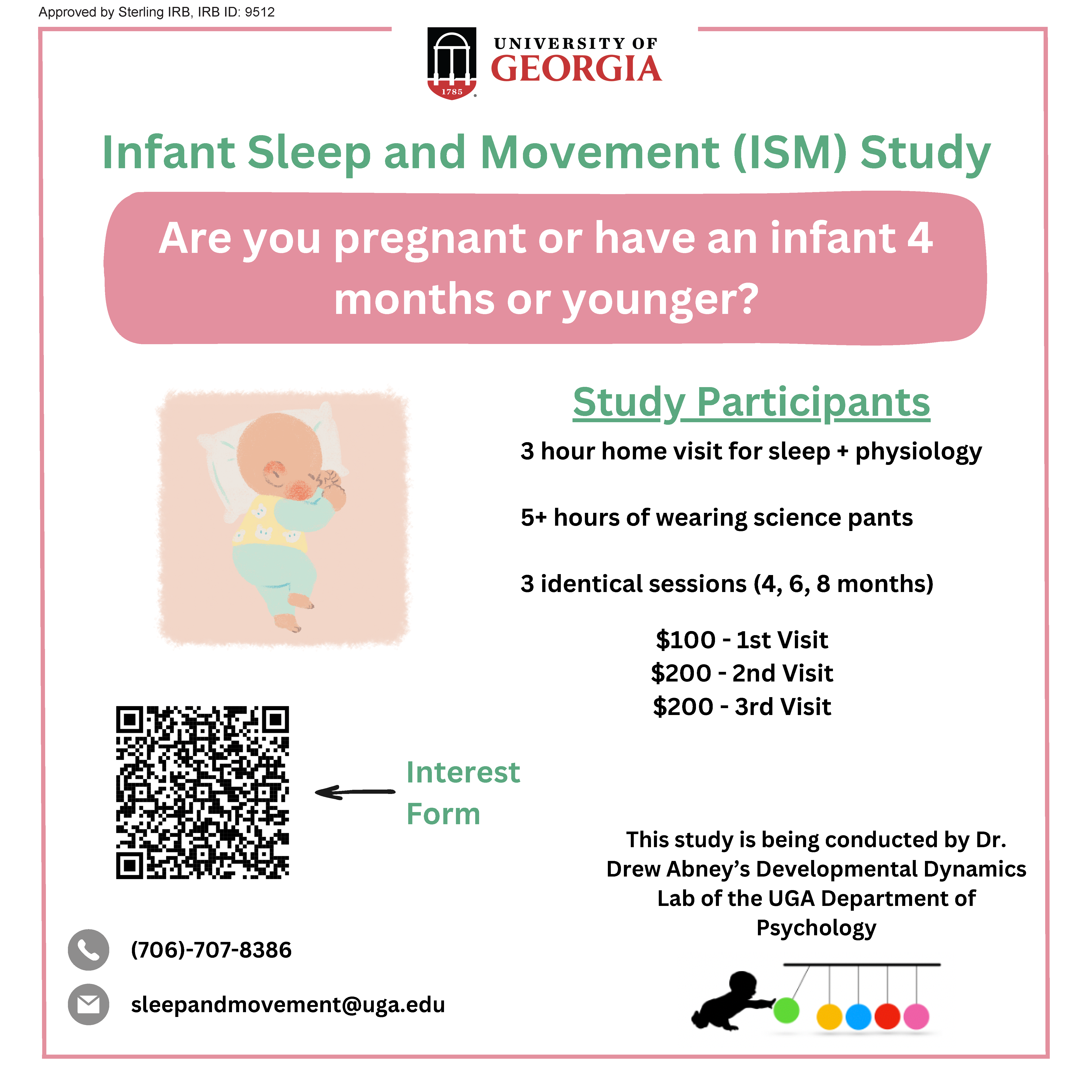Participate In Our Research Studies
We are always looking for individuals and families to participate in our studies. Participation can vary from one-time visits to multi-session studies. Here's what you can expect when you participate:
- Compensation: Participants are typically compensated for their time, with rates varying by study.
- Impact: Your participation helps advance our understanding of developmental dynamics.
- Requirements: Each study has different requirements based on age, developmental stage, and sometimes health status.
- Safety: All studies are conducted following the highest safety protocols to ensure the well-being of our participants.
- Location: The Developmental Dynamics Lab is located in the Department of Psychology at the University of Georgia, situated at 125 Baldwin Street, Athens, GA 30602. Depending on the specific study, participation may require visiting our laboratory or taking place in the participant's home. The location of each study is determined by the nature of the research being conducted.
Interested in participating? Scroll down to review our active studies section to see if you are eligible to apply!
Active Studies
We are currently not recruiting participants at this time.
Concluded Studies

Family Interaction Project (FIP)
- Examined the dynamics of family interactions and their impact on child development.
- Focused on understanding how communication and behavior within families influence cognitive and emotional development in children.
- Utilized various observational and computational methods to analyze interaction patterns.
- Participants: Families with children aged 5 to 7 years.
- The study has concluded, and the findings are currently being analyzed and prepared for publication.

Infant Sleep & Movement Study (ISM)
- Examines the link between infant sensorimotor dynamics during sleep and awake periods.
- Focuses on how sleep and awake movement patterns contribute to sensorimotor development.
- Utilizes novel wearable sensor technology and machine learning algorithms for body position classification.
- Participants: Infants aged 4, 6, and 8 months, with longitudinal tracking.
- The study has concluded, and the findings are currently being analyzed and prepared for publication.
Designed & Created By: Christian Jerry
Last Updated: 04/06/2025